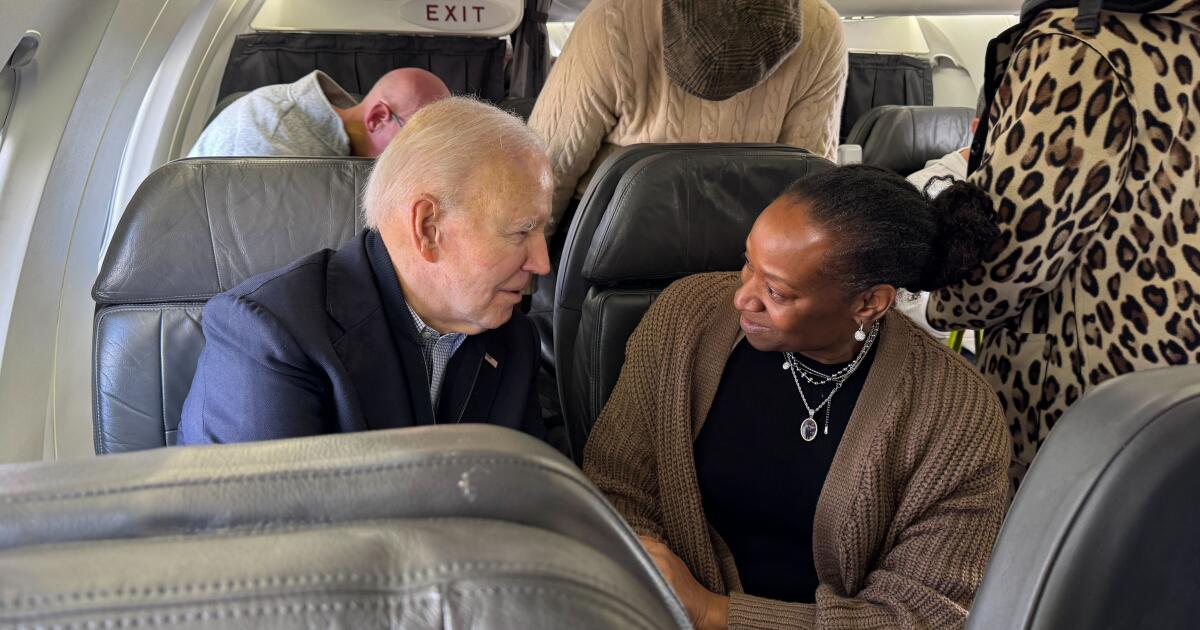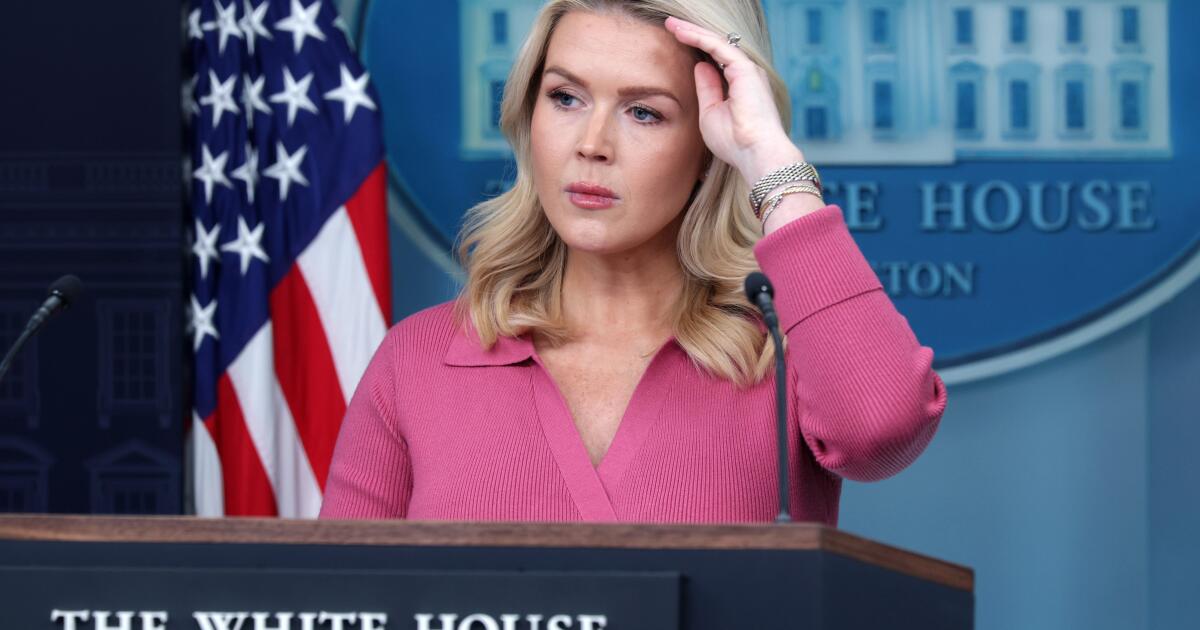Biden flies commercial from Reagan National Airport and winds up stuck in delays like everyone else
WASHINGTON — A crowd gathered at a commuter gate at Reagan National Airport on Friday as fog-laden Washington skies caused an hourlong ground stop that backed up passengers hoping to head out from American Airlines’ Terminal D.
But soon the already densely packed area swelled even more, as word spread across nearby gates that, of the hundreds of air travelers coming and going, only one among them was accompanied by a U.S. Secret Service detail, along with uniformed local police officers: former President Biden.
Biden, who has rarely made public appearances since leaving office last year, sat, like many of his fellow passengers, awaiting a flight that would take him to Columbia, S.C., for an evening event with the South Carolina Democratic Party.
Passengers whispered and gaped in wonder: Why would a man who for a time was leader of the free world be, like they were, at the mercy of airport travel delays, even as he sat ensconced in his security detail?
Maybe for Biden it made more sense than for some other former presidents. Known for years as Amtrak Joe, Biden as a senator prided himself on becoming arguably the nation’s biggest Amtrak fan, regularly taking the train home to Delaware rather than taking up residence in Washington. Now, as a former president, he’s been spotted riding the rails since, taking selfies with and chatting up his fellow passengers.
On Friday, the vibe was about the same, as Biden — seated in the third row of the tiny first class cabin on the commuter jet — boarded the flight ahead of other passengers, along with his detail, members of which were spread throughout the plane.
“God bless you, sir,” one woman said, as she filed past Biden in his window seat, newspaper in his lap.
“Thank you for your service,” a man said, shaking Biden’s hand.
The woman who took the aisle seat next to the former president first set down her coffee on the arm rest they shared, deposited a bag in the overhead compartment, then sat down and realized her seatmate was the nation’s 46th president.
Biden set his hand on her cup to steady it, then met her gaze with a hello as she took her seat.
“I feel like I’m about to cry,” the woman said, as they shook hands and, over the course of the next hour, chatted throughout the flight.
Former presidents and their spouses receive lifelong Secret Service protection under federal law, but there are no provisions guaranteeing the elite levels of private travel that were necessary features of their time in office.
Kinnard writes for the Associated Press.


